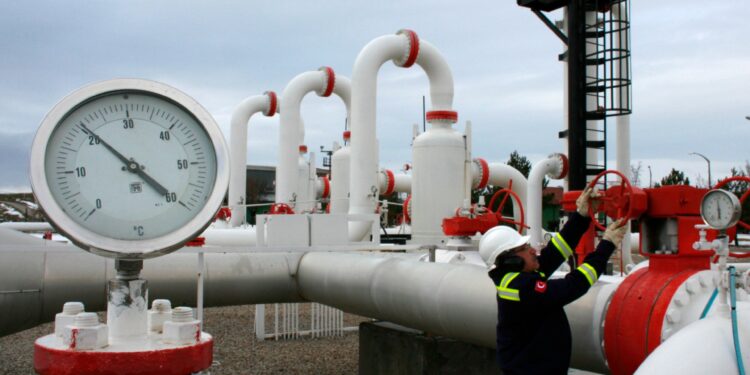Europe’s gas market faces major challenges with the main transportation agreement between Moscow and Kiev expiring on December 31, 2024. If an alternative arrangement is not reached during the final days of the year, a halt to the flow of Russian gas through Ukraine will further complicate a market that is already struggling. Pressure, according to a report published by Bloomberg.
Storage concerns
Bloomberg data indicate that European gas stocks are declining at a faster pace than usual, as they have fallen to about 75% of full capacity, a level that was reached a full month ago compared to last winter.
This decline – according to the agency – is a major concern, not only for the remainder of the current heating season, but also for storage efforts in 2025.
Anatole Fegin, chief commercial officer of the American company Cheniere Energy, said: “The market will face great challenges to restore comfortable storage levels as we enter the winter of 2025-2026.”
Market instability is expected to continue, according to Bloomberg estimates, as contracts for the summer of 2025 have recently risen above contracts for the winter of 2025-2026, increasing the costs of replenishing inventory in preparation for the upcoming heating season.
Russian supplies
Bloomberg notes that even with supplies through Ukraine halted, Russia can continue to deliver gas to Europe via Türkiye. However, the capacity of this route will not be enough to make up for the expected shortfall next year.
In 2024, the European Union imported record quantities of Russian liquefied natural gas, despite calls for a comprehensive ban within the Union countries.
However, from March 2025, Russian ships will not be allowed to use European ports to transfer their cargoes to other ships outside the EU, which could result in more Russian gas remaining within the European market.
According to the agency, Europe will be forced to compete with Asian markets for LNG shipments from global producers. As prices fall, emerging markets in Asia increase their purchases, putting Europe in a difficult competitive position.
US President-elect Donald Trump called on the European Union to increase its purchases of American gas, and threatened to impose tariffs if it failed to do so.
Challenges of expanding gas projects
Several LNG production expansion projects have faced delays around the world, including in the United States. For example, Cheniere’s new project in Texas will see a “relatively slow” expansion through 2025, Anatole Feigin said.
Hedge funds have increased their presence in the European gas market, reaching the end of 2024 with a record volume of long positions, reflecting their expectations of higher prices.
However, some traders have raised concerns that the high concentration of these bets could lead to a sudden sell-off, destabilizing the market.



